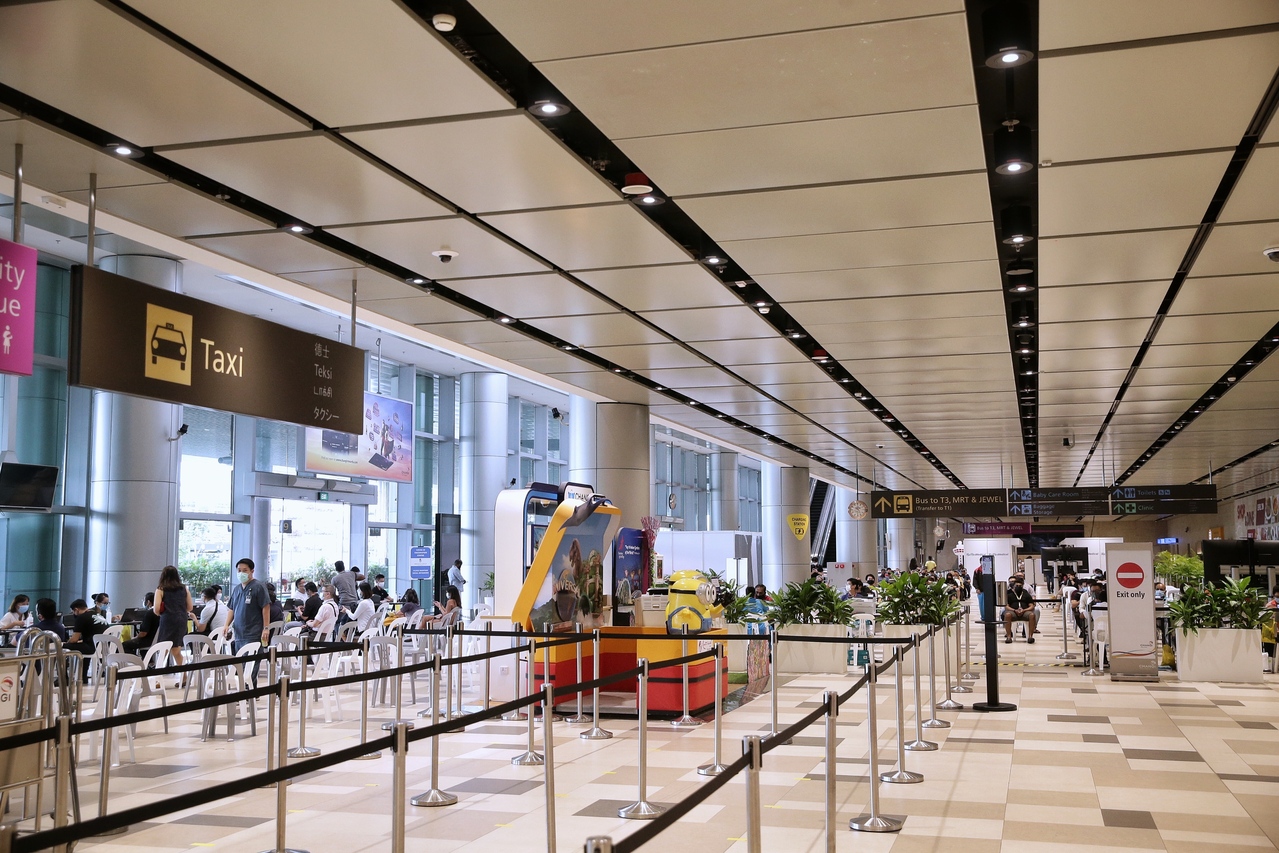Experts foresee uncertain future for mass travel
Sign up now: Get ST's newsletters delivered to your inbox

Worst-case scenarios for international travel could be averted, however, with new cases reportedly falling globally as more countries ramp up their vaccination programmes.
ST PHOTO: KEVIN LIM
SINGAPORE - Mass travel in the near future appears to be increasingly uncertain, with countries relaxing and reimposing travel restrictions based on their progress in fighting the Covid-19 pandemic.
Singapore, for one, suspended three green lane arrangements with South Korea, Germany and Malaysia late last month in view of a resurgence of Covid-19 cases in those countries.
Green lanes allow essential travel for business or official purposes.
Experts told The Straits Times that this comes as no surprise, since the Singapore Government has always adopted a risk-based approach, assessing each country's current risk level. For instance, tighter regulations were imposed late last year for travellers arriving from Britain due to concerns about the new Covid-19 variant.
Associate professor of economics Walter Theseira from the Singapore University of Social Sciences explained: "The pace of border reopenings has always been dependent on the current risk assessment, an approach that has prevailed for many months. As countries get their outbreaks under more control, travel should be reopened to those countries."
He noted that travel will probably remain highly uncertain, given how most governments show no hesitation in shutting borders or banning travellers from one region or another with very little notice should the Covid-19 situation deteriorate.
Doing so will tend to discourage all but essential and high-value travel, Prof Theseira added.
Mr Wong Soon-Hwa, chairman of the Pacific Asia Travel Association, called on travellers to always be prepared for suspension or cancellation of plans.
"It will be very frustrating and disruptive, but necessary," Mr Wong said and added that suspensions are the new reality amid the pandemic.
"It is important that we move forward and not be deterred by such suspensions when they happen," he said.
Professor Teo Yik Ying, dean of the National University of Singapore's Saw Swee Hock School of Public Health, said more green lane suspensions are to be expected, with certain countries seeing scant progress in their fight against Covid-19.
However, new cases are reportedly falling globally as more countries ramp up their vaccination programmes, Prof Teo said, so worst-case scenarios for international travel could be averted.
Places such as Australia and Brunei have continued to do exceptionally well in keeping their Covid-19 situation under control and this has allowed Singapore to keep its borders open to travellers from these countries, Prof Teo added.
A suspension should also not be seen as a setback, Prof Teo said, but instead a part of calibrating the nation's border measures according to a realistic risk assessment of importations.
"Singapore could have adopted a simplistic approach to border control by erring on the side of caution and being homogeneously strict - such as by putting a blanket ban towards travel - but that would not properly recognise the nuances of how governments are able or incapable of managing their local outbreaks," Prof Teo explained.
"Country-specific risk calibration actually permits a faster resumption of travel - except we need to communicate the evolving measures clearly to travellers."
When the Covid-19 situation in the countries with suspended green lanes abates, Singapore will reinstate previous arrangements, given the degree of business travel that happens between Singapore and these countries, Prof Teo said.
"The ability to resume economic activities is just as much of an indication of whether a country is capable of coping with the impact of the virus," Prof Teo added.
Prof Theseira said experimenting with various mechanisms such as regional green lanes and different stay-home notice procedures is also important for Singapore to find the balance between what works in terms of Covid-19 risk control and the needs of travellers.
"The key is to be flexible in coming up with arrangements, yet serious in terms of ensuring they are implemented strictly," he said.


